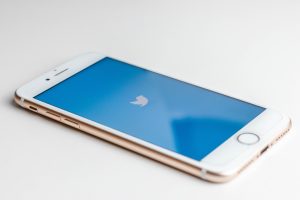A Controversial Celebration: Burger King U.K. and International Women’s Day
Published on July 8, 2021, at 10:20 a.m.
by Maggie Palmer.
Holidays like International Women’s Day are one of the best opportunities for feel-good marketing. Companies can use their social media accounts to appeal for change while calling attention to their brands’ newest initiatives that they hope will make a difference.

The U.K. division of Burger King attempted to join in on this marketing tactic for this year’s International Women’s Day, and it’s safe to say that its efforts fell flat.
On the morning of March 8, the fast-food chain tweeted, “Women belong in the kitchen.” It followed up by explaining that its statement was intended to bring attention to gender inequality in its company’s culinary leadership and promote its new scholarship program, but online critics weren’t having it.
Twitter users and online news publications alike were quick to call out the company for its use of a traditionally sexist phrase in its tweet, particularly on a day dedicated to celebrating and supporting women.
Fernando Machado, the now-former global CMO for Burger King’s parent company Restaurant Brands International, responded to the backlash as soon as it began. He tweeted from his personal account that the message was well-intentioned and meant no harm, and added that deleting the original tweet would only bring “even more attention” to the matter.
However, this defense did nothing to solve the issue in the eyes of those who were upset.

Burger King U.K. issued an apology via Twitter later that evening and vowed to “do better,” and the infamous tweet was deleted from its Twitter page. But the Internet remembers all. The company’s statement lives on as an example of how not to appeal to your audience, even if your intentions are well-meaning.
One of the primary issues in this situation is that Burger King U.K. chose to use Twitter’s thread feature for its messaging. The controversial tweet was placed by itself at the beginning of the statement, making it easy for Twitter users to take it out of context through retweets, likes and replies.
It’s impossible to guess whether its message would have been better received had Burger King U.K. taken a different approach, but companies can certainly learn from the fast-food chain’s mistake. This PR disaster demonstrates that there’s a fine line between bold and controversial and emphasizes the importance of using social media’s features to convey your message most effectively.




